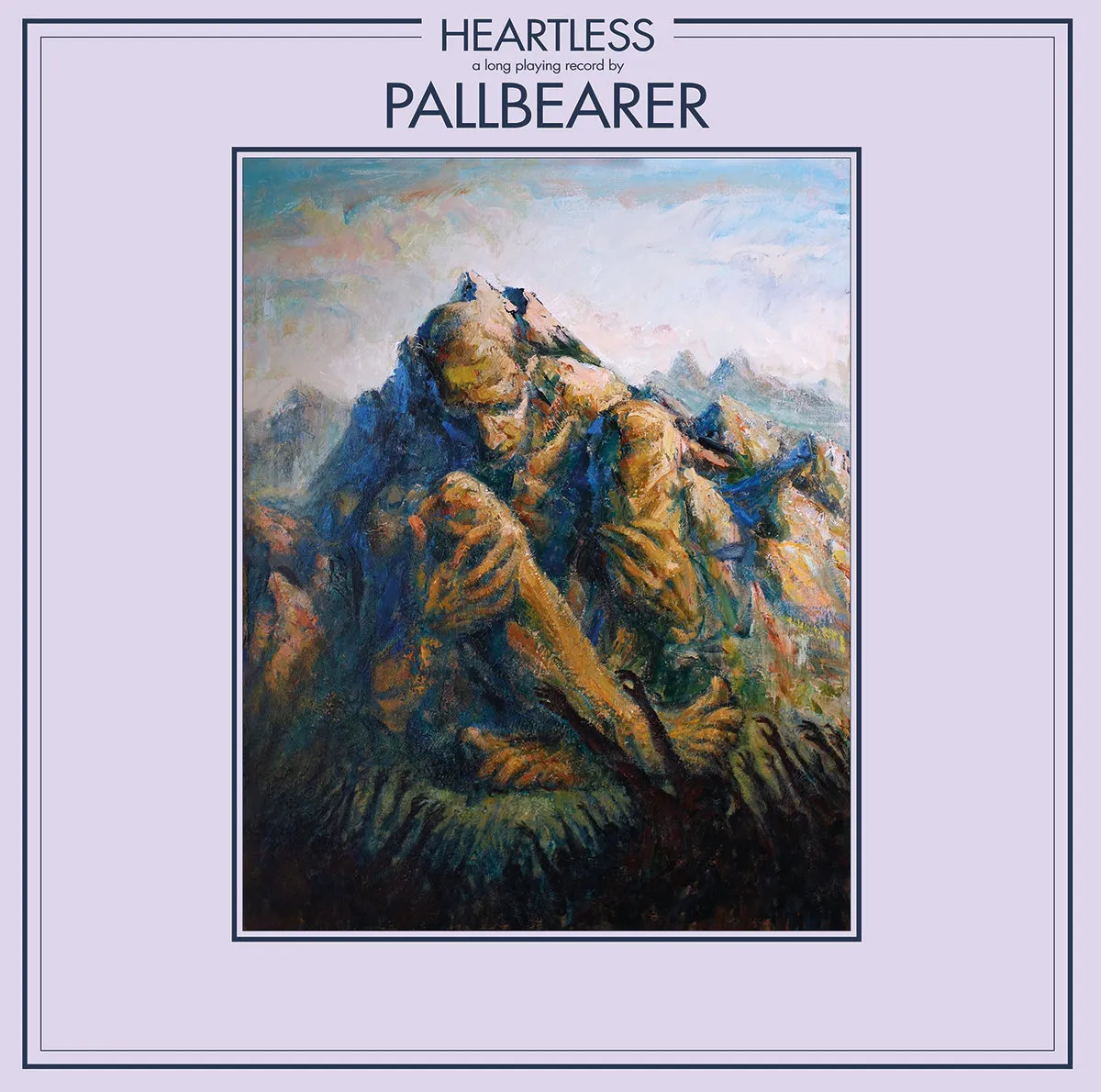
If we’re talking about God, that must mean that someone has already died, and it’s probably you.
Pallbearer’s third album “Heartless” is filled with themes of pain, sorrow, rage, fragmented xyzs, and some really badass guitar solos. But, I think, what makes this album incredible to me is its singular focus on explicating a philosophy of Time. I talk about Time a lot, in case you didn’t know.
We always set foot (okay, maybe crawl) right into the middle of the story, even if it reads: in the beginning, or once upon a time. It’s always the middle. Something has already happened and something is about to happen. In this case, we know one thing: Pallbearer is here to bring the doom metal; what can they be annunciating but the death of God, Man, and World? Nietzsche was correct in saying that God is dead (and you have killed him, but that’s besides the point), but he also should have said: now that God is dead, so are all the too-big concepts that we as humans love to hold so dear: a transcendent Self, a unified World.
Everywhere there are fragmented shards that innocence itself discovers upon awakening. The harbinger beside us is the symbol of an ever-present wound. What is this wounding? It is the past incarnated in the present attesting to a cataclysmic and violent event. We have been crawling along every day, sensing the approach of the end, but never quite knowing when and how it might occur. Dread is palpable, and anxiety easy to come by. One need only summon the ghost of Eros to evoke the wound that Mnemosyne bleeds from.
Death is the only remaining divinity now. “Believe in your own death, and your wish will be fulfilled,” sings the track “Dancing in Madness.” A shattered bell, a shattered bird; a shattering for every object, every idea, every identity--as if Nietzsche had decimated every form with his hammer after uttering the words “I have become every I in history...”
Pallbearer would have us understand this shattering as being synonymous with our future forward. The Unconscious cares not that it dies, but wants to choose the manner in which Death arrives to cut the linkage between Unconscious and Consciousness. And in this final moment, in the Thanatopic Synthesis of Time, the Unconscious and Conscious, God and Man, World and Organism, all turn their backs on each other, “once and for all.”
And then, as if by infernal magic, an amnesiac appears, traversing the nomad’s desert. A blank slate, a new form, a new life for all those forms that had been shattered. A new World for the people yet to come. The one who has atoned is not the one who treads this landscape, miraculating it like Adam in his garden. The one who has atoned is synonymous with the dead and heartless God. When the 3rd Synthesis of Time intervenes, a crack forms that disjoints Time itself; what seeps out of the crack is quite commonly called Humanity, but is everything that a God or guilty conscience is not--not resentful, not ashamed, nor angry or mournful.
A solitary being with a luminous body that heals all the broken skies, birds, bells, selves, etc that the imagination can possibly fathom. A shaman without a name that bursts in laughter at all judgements, especially the judgement of God. Divinity is as simple as having a heart; thus they plead for us to understand.